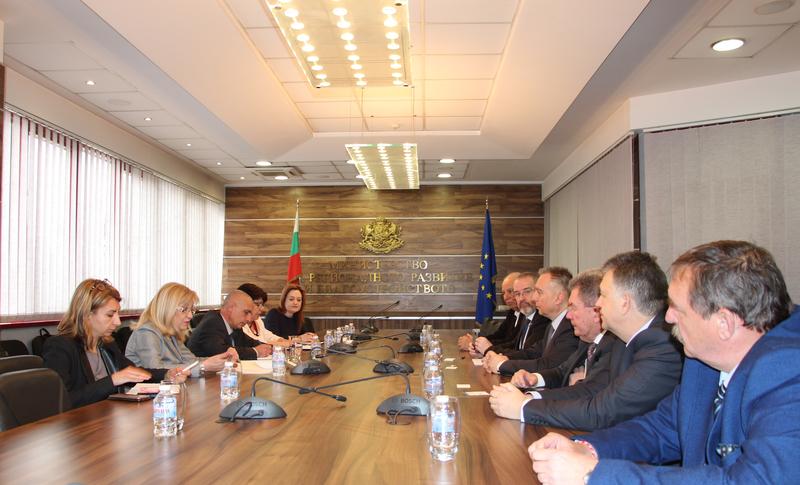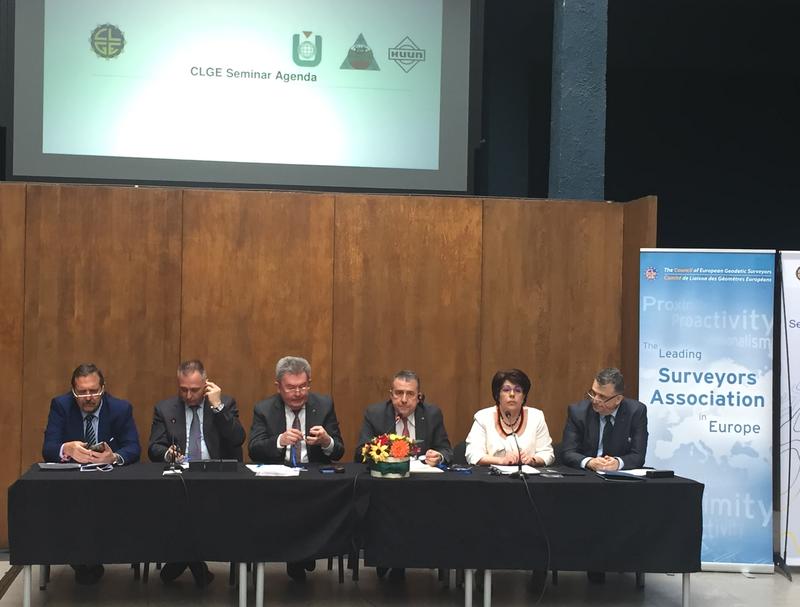Minister Petya Avramova: Geodesy is a fundamental activity for all infrastructure policies pursued by the Ministry of Regional Development and Public Works
Minister Petya Avramova: Geodesy is a fundamental activity for all infrastructure policies pursued by the Mini
By Ministry of Regional Development and Public Works
According to Deputy Minister Yovev, a new horizon is needed in the field of geodetic activity with a vision of 2030
“Geodesy is a fundamental activity for all infrastructure policies pursued by the Ministry of Regional Development and Public Works. That is why it is important for us to work in partnership with all members of the Council of European Geodetic Surveyors and to work together to improve the quality of life and business conditions not only in our country, but throughout Europe. It is important that this dialogue also has a practical dimension. The future of modern society lies in digitised synchronised databases.
This was said by the Minister of Regional Development and Public Works Petya Avramova, who met today with the President of the Council of European Geodetic Surveyors Maurice Barbieri and representatives of the organisation. The Deputy Minister of Regional Development and Public Works - Valentin Yovev, the Executive Director of the Geodesy, Cartography and Cadastre Agency - Violeta Koritarova, the Chairmen of the Chamber of Geodetic Engineers in Bulgaria and the Union of Surveyors and Land Surveyors in Bulgaria - Eng. Zlatan Zlatanov and Eng. Ivan Kalchev also took part in the conversation.
The Geodesy, Cartography and Cadastre Agency has the task to build the address register in the country, as well as to transpose the European directive Inspire in our country, it became clear during the meeting. “The creation of a digital large-scale topographic map is forthcoming. The data in it are the basis of every investment project and this information is important for our economy,” said in the course of the conversation engineer Koritarova.
The Council of European Geodetic Surveyors could support the team of the ministry and the GCCA with its experts in the process of building the topographic digital database, the Council President Maurice Barbieri said. He expressed readiness of specialists from the Council to provide their Bulgarian colleagues with experience and appropriate good practices in the field.
“In order to meet the future high-tech challenges in Europe and the world, digitalisation is part of the path we must take,” concluded Minister Avramova, emphasising the importance of all European institutions working in this field to combine skills.
Later today, on the occasion of the Global Surveyors Day, the Deputy Minister of Regional Development and Public Works Valentin Yovev opened a seminar with the participation of representatives of the Council of European Geodetic Surveyors.
Before the participants in the forum Eng. Yovev mephasised the need for a new horizon in the field of geodetic survey with a vision of 2030. According to him, the work of geodetic surveyors is not always visible to people and often goes unnoticed, but their activities are directly related to all areas of the economy. “Without our profession, there can be no state and no society,” Yovev said during the event.
He told the forum that geospatial information is changing the paradigm of life and is the driving force of the economy today.
According to him, a well-functioning cadastre is one of the main components of management in the field of urban planning and infrastructure development, protection of land ownership and others.
He was once again adamant that the priority in the work of the Ministry of Regional Development and Public Works is the finalisation of the reform in the field of cadastre, as well as the transposition of the European Inspire Directive in our country.
“I am convinced that only with complete and quality data can we provide quality services to citizens and businesses,” said the Deputy Regional Minister, adding that the role of geodetic surveying activities will continue to grow globally, contributing to the development of strategic areas such as infrastructure, energy efficiency, spatial planning, the development of the so-called “smart cities”.






